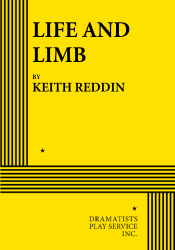
THE STORY: As the play begins Franklin, a young draftee, and his new bride, Effie, are on their honeymoon, an idyll which ends when Franklin returns to his unit and then goes off to Korea, where he loses an arm. When he returns home things go steadily from bad to worse; he can’t find a job; his wife is having an affair; and they are visited constantly by her best friend, Doina, a Rumanian émigré who mangles the English language and shares Effie’s passion for movies. Eventually Franklin lands a job of sorts by virtually selling his soul to Tod, a rather sinister but successful manufacturer of artificial limbs whom Franklin had met in Korea, but his hope of pulling things together at last fails when Effie is killed by a collapsing movie palace balcony. The action then moves to Hell, where Effie and Doina are occupied making potholders and visiting supermarkets and where they are soon joined by Franklin, still the poor innocent searching for an America that promises a boundless, wonderful life—and surely doomed to failure by the oddities and evils of a world he never made.
A biting, brilliantly inventive black comedy, which marked the debut of a young writer of unique talent and theatrical flair. The play focuses on the self-satisfied America of the 1950s, and the darkly comic personal vicissitudes of an embittered young veteran who returns from Korea (minus an arm) to face the problems of finding a job and saving his marriage.
“…a macabre journey through that [American] mainstream, told in deadpan, cold-bloodedly ghoulish, comic style.” —The New York Times.
“Keith Reddin’s play belongs to a vigorous American tradition of broad, black, bitter fantastic-satiric comedy…” —Village Voice.
“…there are many funny lines and surprising moments.” —The New Yorker.
